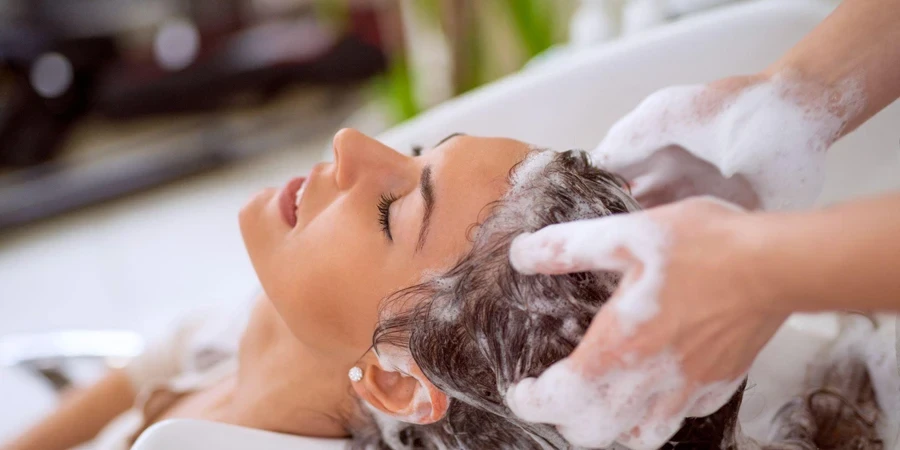Introduction
In today’s ever-evolving beauty landscape, haircare has taken a front seat in the quest for personalized and effective solutions. Gone are the days of one-size-fits-all products, as consumers demand more from their haircare routines. This blog post delves into the latest trends shaping the future of haircare, focusing on first-aid haircare, embracing curls, and next-gen styling products. These trends highlight a shift towards tailored solutions that cater to fluctuating needs, celebrate diversity, and prioritize hair health, setting the stage for a more inclusive and holistic approach to hair care.
First-aid haircare: tailored solutions for fluctuating needs
The future of haircare is dynamic and personalized, with first-aid haircare leading the charge in offering tailored solutions for fluctuating needs. This trend focuses on addressing the individualized needs of consumers, which vary based on environmental factors, life stages, or pre-existing conditions. For example, K-beauty brand Steambase has introduced the Tea Tree Scalp Water Scaler, targeting oily scalps and scalp odor with a potent mix of 3% tea tree extract to cool the scalp and salicylic acid to dissolve sebum and dead skin cells without drying the scalp. Similarly, FDA-approved Jupiter from the US aims to destigmatize dandruff with its simplified packaging range of haircare solutions.
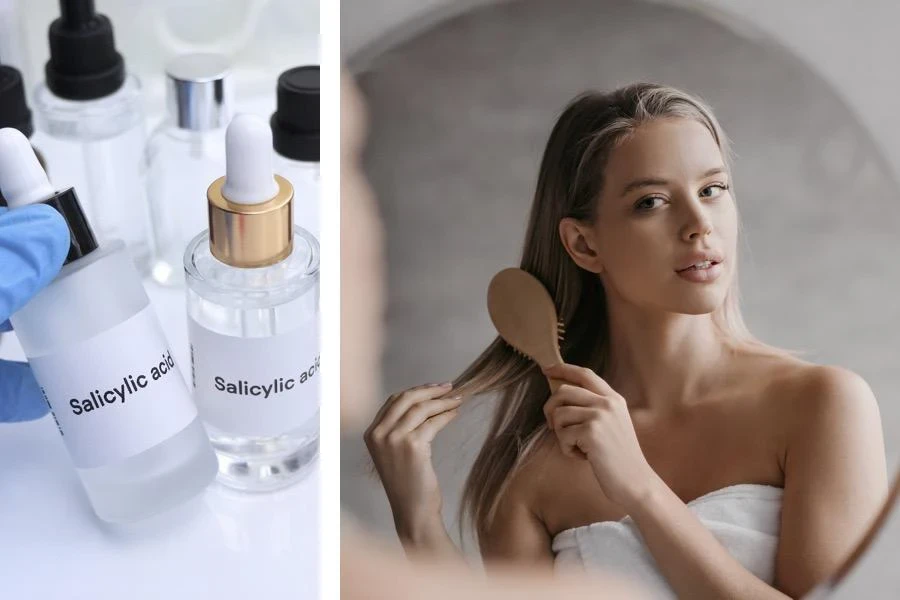
The movement towards first-aid haircare also embraces targeted solutions that support fluctuating emotions, hormones, and scalp sensitivities. This is particularly favored among “Skintentional” consumers who seek products that align with their holistic health and beauty routines. Age-agnostic haircare, highlighted by Dyson’s 2022 Global Hair Study, reveals that concerns such as dandruff, hair loss, and greying are prevalent across various demographics, not just those over 40. The study underscores the demand for products that address growth, fullness, breakage, and scalp stimulation, with ingredients like rosemary oil, locally sourced salt, lactic acid, and caffeine being key to tackling these issues.
Furthermore, hormonal fluctuations from pregnancy, menopause, to menstrual cycles are being addressed with new formulations. Oh Hey Mama, for example, offers a scalp care routine targeting postpartum, hormonal, and aging hair concerns, including a scalp wash, hair serum, conditioner, and scalp massager to stimulate growth. This trend emphasizes the need for haircare to adapt to the intuitive practices of skincare, suggesting a growing market for products that respond to hormonal changes affecting hair health.
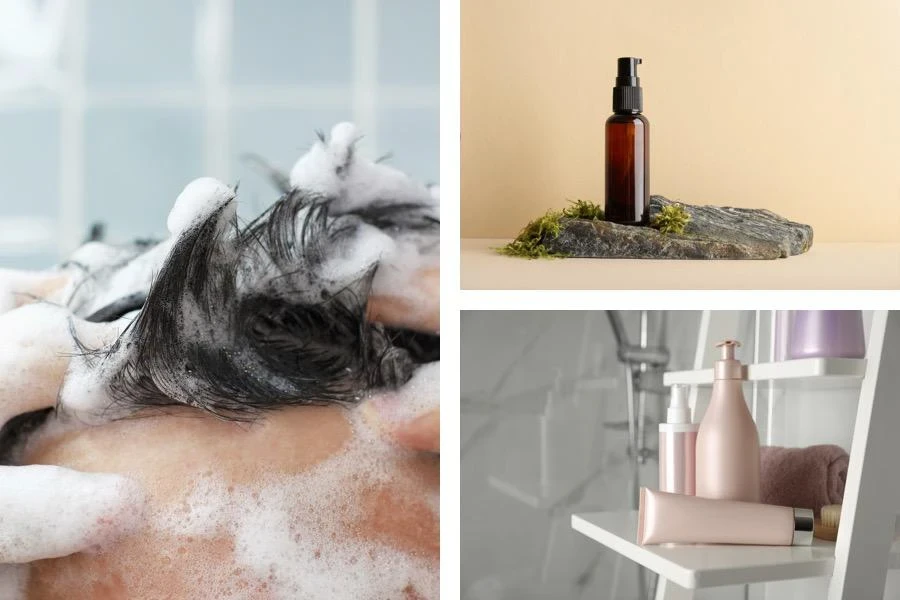
First-aid haircare is not just a trend but a response to the evolving understanding of hair health. It represents a shift in consumer expectations, where haircare products are expected to be as responsive and personalized as skincare. This approach not only promises better hair health outcomes but also aligns with a more inclusive and comprehensive view of beauty and wellness, catering to the unique needs of each individual.
Embracing curls: products for curly and coily hair types
The inclusivity movement within the haircare industry has significantly expanded to embrace curly and coily hair types, with a focus on offering targeted solutions that cater specifically to the needs of these textures. This shift is evidenced by brands like OurX, which not only provides a glossary of ingredients and hair terminology on its website but also offers personalized haircare regimens for curl types 3-4. This approach includes education on repairing damage, managing porosity, and recommending protective styles, addressing the unique challenges of curly and coily hair.
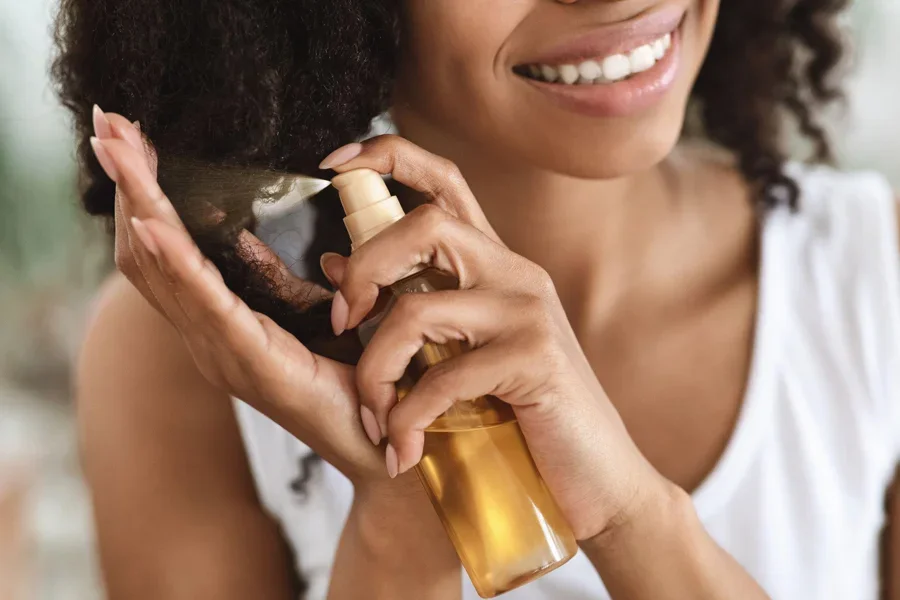
Rebundle, another pioneering brand, has introduced braid extensions made from naturally extracted banana fibers as a sustainable and scalp-friendly alternative to traditional plastic synthetic hair. This innovation not only reduces scalp irritation associated with protective styles but also aligns with environmental sustainability through its biodegradable ReGen Hair Fiber.
The haircare market’s expansion into curly and coily hair products is not just about diversification but about filling a long-standing gap in the industry. According to Carra’s 2023 Texture Gap Report, online conversations about type 4 hair are notably active, with many expressing concerns over dryness, breakage, and the challenge of detangling. Products like Richualist’s The Mint, a hair tool designed specifically for 4C hair types, make styling not only more efficient but also more enjoyable, enabling even distribution of products during the detangling process.
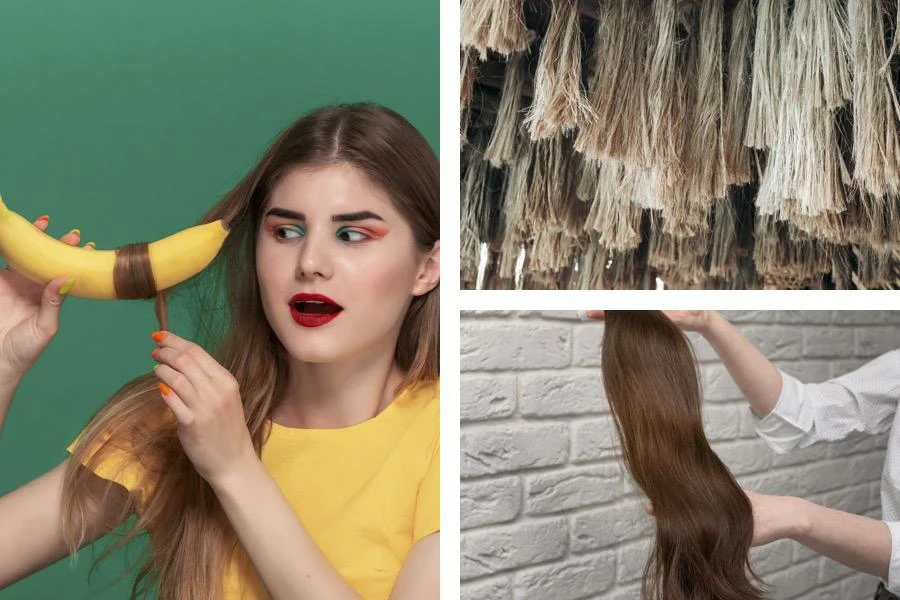
This trend towards embracing curls and advocating for inclusive products represents a critical step forward in addressing the needs of the one billion people worldwide with textured hair. It underscores the importance of prioritizing education and accessibility to ensure that all hair types are recognized and catered to, offering personalized and texture-specific solutions that promote hair health and beauty.
Next-gen styling: health-centric styling products
The revolution in hair styling is increasingly pivoting towards products that not only meet aesthetic desires but also nourish and protect hair health. This new era, epitomized by brands like Prose and TOUN28, is introducing products that blend style with substance. For instance, Prose’s Custom Styling Gel, composed of over 97% natural ingredients including aloe vera, okra, and sea moss, allows users to choose from three non-crunchy hold levels tailored to their hair type, demonstrating a commitment to both performance and hair health.
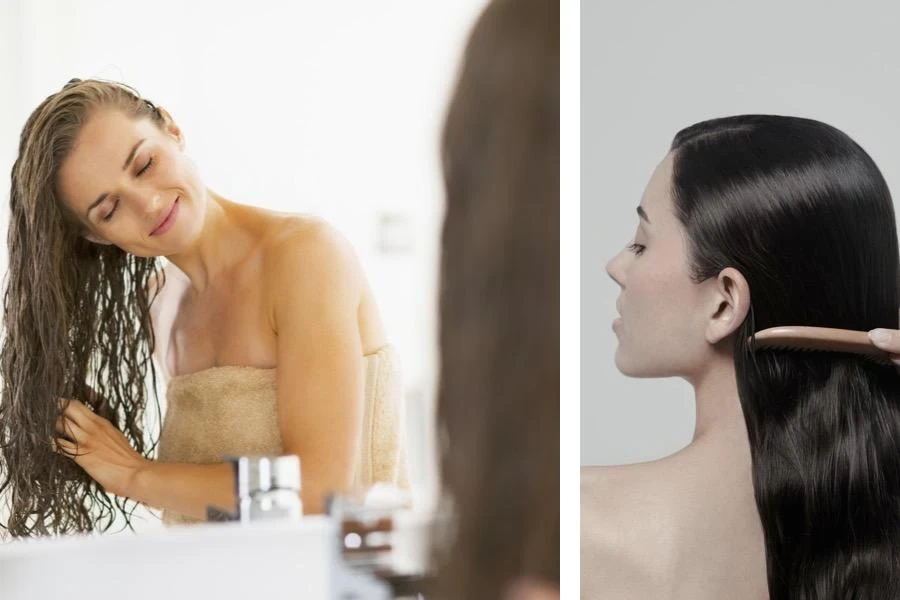
TOUN28, a Korea-based brand, has taken innovation a step further with its Mindful Hair Perfume Mist, which features green tulip rich in collagen. This product stands out by encapsulating its ingredients in oil bubbles that burst upon contact with hair, maintaining freshness and offering a sensory experience that also benefits hair health. Ceremonia’s Pequi Styling Gel, for example, utilizes açai extract, aloe vera powder, and pequi oil to improve shine, decrease frizz, and nourish strands, embodying the essence of health-centric styling.
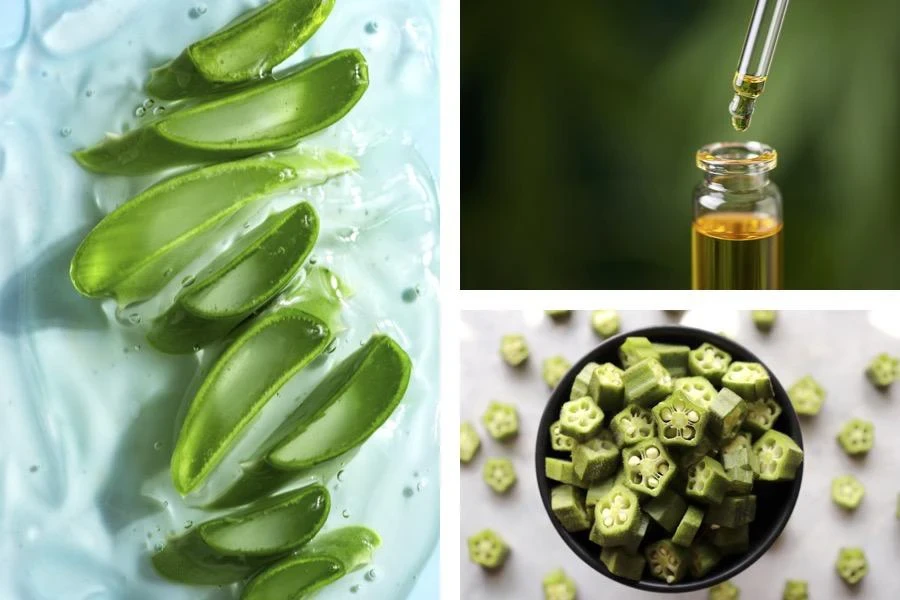
These innovations underscore a significant shift towards styling products that are as concerned with hair health as they are with aesthetic appeal. They represent a response to growing consumer expectations for multifunctional products that deliver both immediate styling results and long-term health benefits, setting a new standard for the industry and pointing towards a future where the health of the hair is not sacrificed for style.
Conclusion:
The haircare industry is undergoing a transformative shift, with first-aid haircare, inclusivity for curly and coily hair types, and health-centric styling products leading the way. These trends reflect a deeper understanding of individual needs and a commitment to providing personalized, effective solutions. As we embrace these innovations, the future of haircare looks promising, with products that not only enhance our beauty but also nurture our hair’s health. The message is clear: in the world of haircare, personalization, inclusivity, and health are not just trends but essential pillars for the future.
